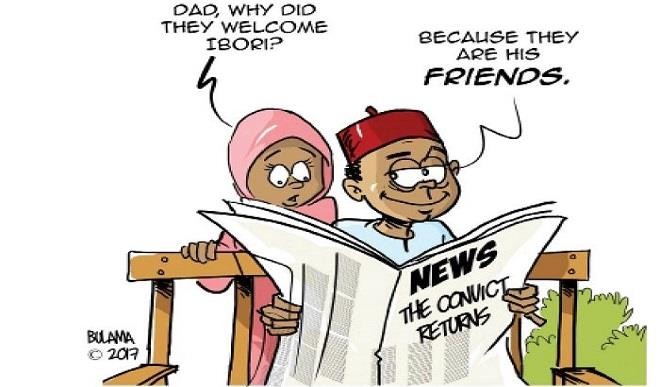Will generational gap influence Nigeria’s politics in 2019?
In December 2006, the Governor of Kaduna State, Malam Nasir Ahmed El-Rufai, then as FCT minister, caused a stir before an audience at the launch of the Heart of Africa project in Washington DC, USA by saying that only Nigerians aged 44-55 would be elected president in April 2007. Indeed, the late Malam Umaru Musa […]


In December 2006, the Governor of Kaduna State, Malam Nasir Ahmed El-Rufai, then as FCT minister, caused a stir before an audience at the launch of the Heart of Africa project in Washington DC, USA by saying that only Nigerians aged 44-55 would be elected president in April 2007.
Indeed, the late Malam Umaru Musa Yar’adua aged 55 then emerged president. Not everyone buys into generational theories and some censure historians, marketers and social scientists for stereotyping people.
Though, when it comes to generations, features and qualities are often referred to as the collective persona. Neil Howe and late William Strauss (1993) in their popular book titled; “13th Gen: Abort, Retry, Ignore, Fail”? define Generation Xers as those born between 1961 and 1981. The age range for Generation X as of 2016 is 55 to 35 (my broadest definition). In 2011, the first Xers turned 50 and the youngest turned 30. Xers are presently the “sandwich generation” in Nigeria which is caring for aging parents and raising more than 60 percent of the nation’s children under 18.
From independence in 1960 till date, all those that led the country fell into categories the media has used as stereotypes for every generation. For example, Americans born between 1901 and 1924 were originally dubbed the “Greatest Generation”. While those born between 1925 and 1942 were dubbed “The Silent Generation”, those born between 1943’s and 1960 are the “Baby Boomer Generation”. Those born between 1982 and 2004 are regarded as “Generation Y” or (The Millennial’s) who are now in their 20s and 30s are characterized as narcissistic, over ambitious, entitled, lazy, ICT-oriented, social media gurus and impatient. Those born from 2005 to date are dubbed the “Homeland Generations”. Those generalizations evolved and dissipated over time not only in America but on every continent. For example, in Nigeria today, the Xers complain too much of being neglected and ignored, whereby the majority of those that criticize, lead political, economic, leadership and public discourse on social media platform are the millennials. It would be easy enough to blame society’s rage against the aging generations. It often feels that they’re sitting high in their ivory towers and leadership positions rewriting history by refusing to give way to the younger generations. This, many younger generations could have carried on, trusting they we will have a chance to rebrand ourselves and move the country forward if the older have given way to them.
On the other hand, rather than pointing fingers and conveying censure, we can hub on what lies ahead. Questions such as what has the past taught us? What are the past mistakes? What do we want the future to look like? Most importantly, what power do we have now, using all these traits – desirable and undesirable alike – to shape the next generation? For example; all those that lead the country since the collapse of the First Republic were all born before 1960 It’s also an undeniable fact that in the previous and present administration, some Xers had opportunities to be elected and appointed into leadership positions.
While some of them were disappointing and embarrassing to the country and the generation they represent on their stewardship, some excelled in leadership. The shortcomings of some Xers in their previous leadership outings shouldn’t be an excuse that the country is in shortage of competent, tested and capable members of the generation that is prepared for the nation’s top job.
Yahaya wrote from Muye, Niger State.
